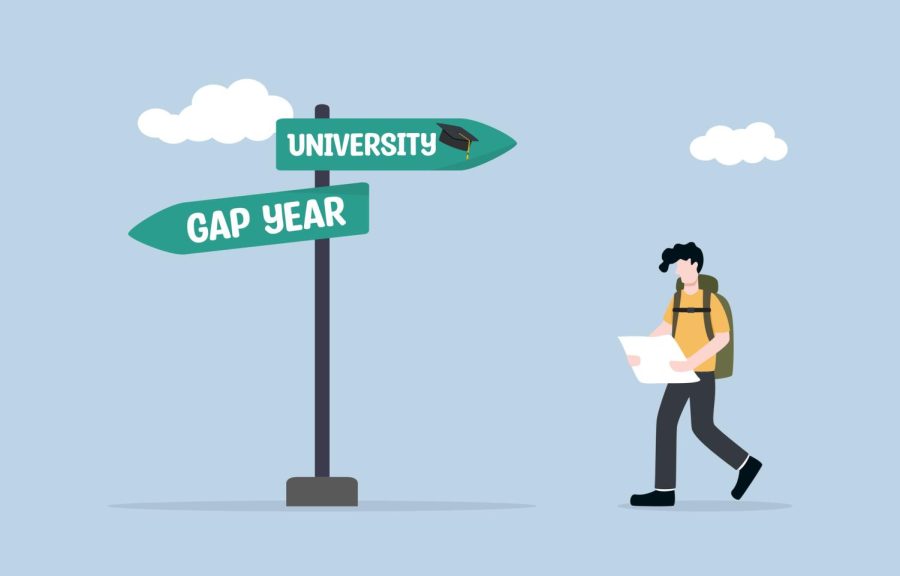Children are often asked about their college and career aspirations at a young age. In America, the earlier one begins striving to get ahead, the more advantageous it is perceived to be. Taking a gap year from your educational journey is often unheard of and deemed irresponsible.
However, choosing to take a gap year and deviating from this societal norm can yield significant rewards. Delaying one’s college enrollment by a year can have a substantial impact on the overall trajectory of one’s life. In fact, it is highly likely to provide a significant advantage in the long term.
This period away from traditional learning, typically lasting a year, provides students with time to explore new places, participate in community service, intern in their desired field, or work to save money.
Research by the Gap Year Association has proven that taking a gap year between high school and college is an excellent opportunity.
According to research done by The Gap Year Association, it was revealed that students who took a gap year had higher college GPAs than their counterparts who didn’t. Moreover, according to a survey by the Gap Year Association, 97 percent of gap year participants experienced increased self-confidence, while 98 percent reported personal growth.
Additionally, “60 percent of polled gap year participants said they took their education more seriously due to their experiences … and outperformed their peers in college with positive effects lasting throughout their four years at school.”
The benefits extend beyond simply prioritizing one’s studies. A staggering 80 percent of individuals who opted for a gap year affirm that the skills they developed during their time away from formal education will greatly contribute to their future professional achievements.
Additionally, students in the medical field report significantly lower levels of burnout. Specifically, during analysis, according to the National Library of Medicine, gap years were independently associated with lower levels of burnout, and burnout decreased stepwise with students who took gap years.
While taking a gap year can be beneficial, it is important to consider the potential challenges. Falling behind in one’s academic studies and struggling to readjust to the academic rigors upon returning to school is a valid concern. Additionally, finding meaningful work or volunteer opportunities during a gap year can be difficult, leading to feelings of boredom or isolation.
But, the truth is that only some students who gain college admission are prepared to embark on that journey, and by taking a break between high school and college, however long, that student may gain the experience needed to succeed in university.
Columns reflect the opinions of the authors and are not necessarily those of the Editorial Board, The Daily Iowan, or other organizations in which the author may be involved.










